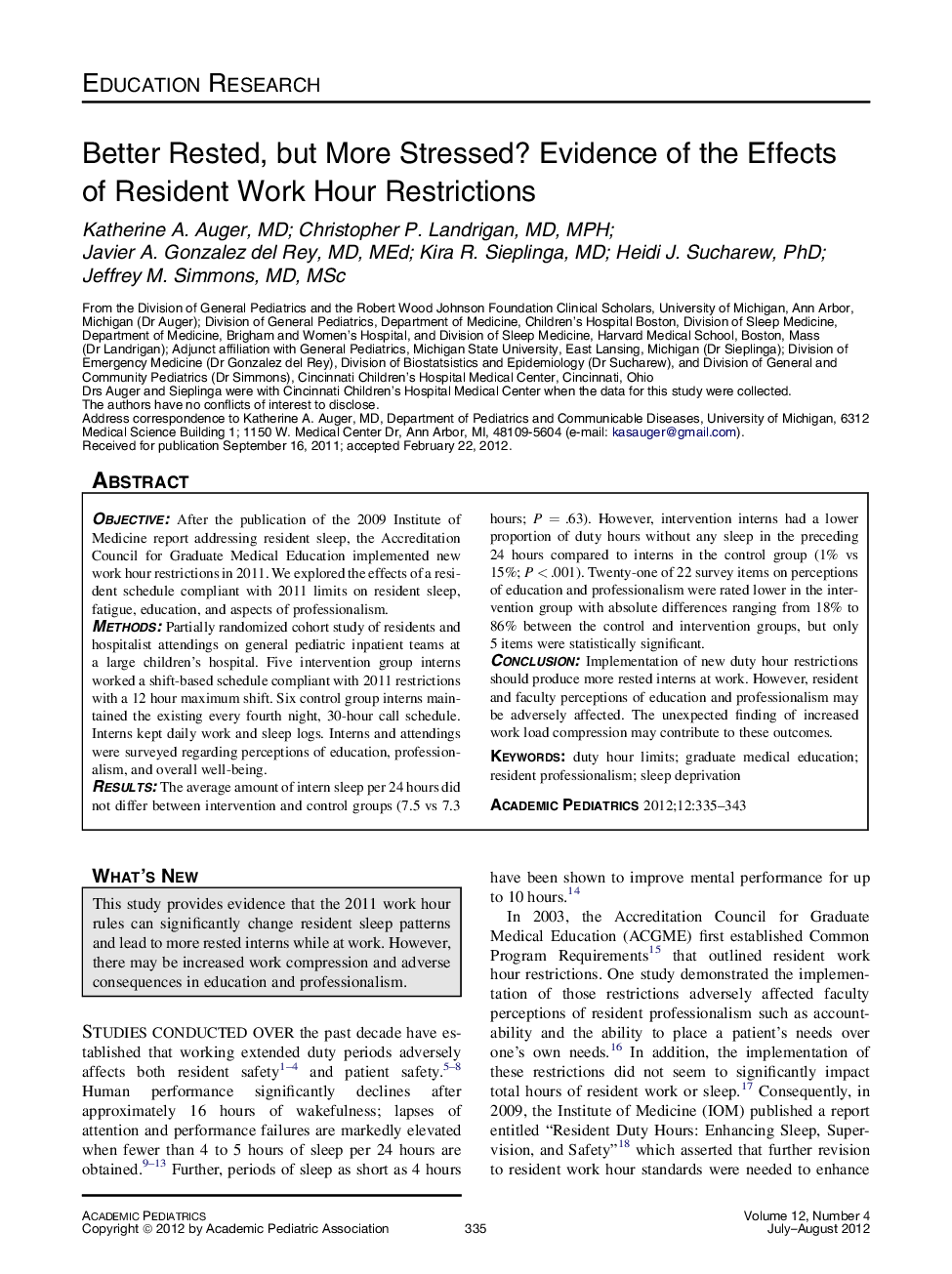| Article ID | Journal | Published Year | Pages | File Type |
|---|---|---|---|---|
| 4139872 | Academic Pediatrics | 2012 | 9 Pages |
ObjectiveAfter the publication of the 2009 Institute of Medicine report addressing resident sleep, the Accreditation Council for Graduate Medical Education implemented new work hour restrictions in 2011. We explored the effects of a resident schedule compliant with 2011 limits on resident sleep, fatigue, education, and aspects of professionalism.MethodsPartially randomized cohort study of residents and hospitalist attendings on general pediatric inpatient teams at a large children's hospital. Five intervention group interns worked a shift-based schedule compliant with 2011 restrictions with a 12 hour maximum shift. Six control group interns maintained the existing every fourth night, 30-hour call schedule. Interns kept daily work and sleep logs. Interns and attendings were surveyed regarding perceptions of education, professionalism, and overall well-being.ResultsThe average amount of intern sleep per 24 hours did not differ between intervention and control groups (7.5 vs 7.3 hours; P = .63). However, intervention interns had a lower proportion of duty hours without any sleep in the preceding 24 hours compared to interns in the control group (1% vs 15%; P < .001). Twenty-one of 22 survey items on perceptions of education and professionalism were rated lower in the intervention group with absolute differences ranging from 18% to 86% between the control and intervention groups, but only 5 items were statistically significant.ConclusionImplementation of new duty hour restrictions should produce more rested interns at work. However, resident and faculty perceptions of education and professionalism may be adversely affected. The unexpected finding of increased work load compression may contribute to these outcomes.
